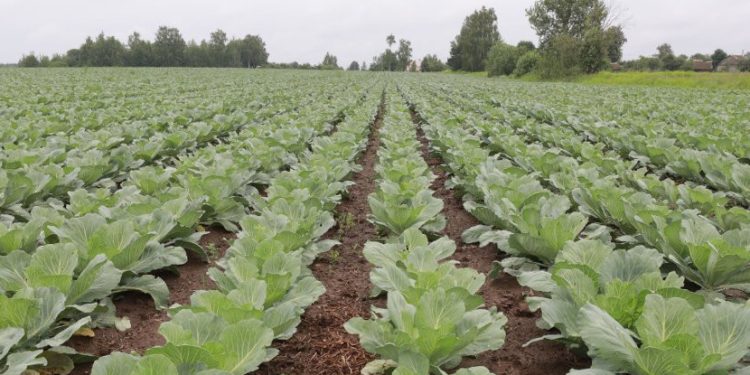More than 150 thousand tons of fruits and vegetables will be included in the country’s stabilization funds this year. Minister of Antimonopoly Regulation and Trade Aleksey Bogdanov said this on the air of the ONT TV channel, BelTA informs.
“We have developed a system of stabilization funds, where we determined the necessary volumes of products that will need to be pledged. In particular, we plan to increase the volume of laying by 35% for six commodity groups. This is a “borscht set” – potatoes, beets, carrots, onions, cabbage, as well as apples. The approximate volume will be more than 150 thousand tons. This is an absolute guarantee that there will be no shortage,” said Alexei Bogdanov.
In June, the Ministry of Antimonopoly Regulation and Trade and representatives of large retail chains signed an additional agreement on discounts on socially important goods for vulnerable categories of the population. “Retail chains have entered into a social partnership with the state, and we have already extended the agreement on a social discount of 10% for 29 product groups. The amount of the discount since its inception has exceeded Br11 million. MARCH.
According to the minister, Belarus has long ensured its own food security. “Today we are the largest exporters of food products. We don’t see any fear in that some imported goods have disappeared from store shelves. Belarus is able to replace all this and has already replaced it. In particular, blue cheese, parmesan, hard , aged cheeses, cheeses with white mold,” said Alexey Bogdanov.
He also commented on the action program to stabilize prices, improve pricing methodology and monitor compliance with pricing legislation for 2022. “The adopted program focuses on economic measures of an urgent impact, that is, already this year they will affect the stabilization of prices and slow down inflationary processes in our republic,” the minister said.
As he noted, the program consists of several blocks. The first is measures to saturate the domestic market, which includes a program for import substitution and saturating the market with goods that are not produced in Belarus. “It contains the main idea. Those growth points where we provide ourselves with food, food or other goods need to be further developed, increasing production, expanding the range, while minimizing the use of imported raw materials, components and materials,” he added. March leader.
The next block is economic measures, which provide for the establishment of tariffs for energy resources in Russian rubles, the adjustment of programs to reduce production costs, the improvement of the public procurement system, and the adoption of measures to eliminate unreasonable mediation.
Another block is measures to improve the pricing methodology and control activities. We are talking about strengthening the interaction of regulatory authorities with a view to identifying price collusion, improving pricing for medicines and medical services, and increasing the share of sales of domestically produced goods.
In addition, measures are envisaged to reduce inflationary expectations.
As previously reported, the Council of Ministers and the State Control Committee approved an action program to stabilize prices, improve pricing methodology and monitor compliance with pricing legislation for 2022. This is a strategic plan that provides for the implementation by the end of the year of actions to saturate the domestic market with goods (legalization of parallel imports, development of a set of measures for the production of import-substituting agricultural products, improvement of the stabilization fund system), economic and administrative nature of regulation (transfer of payments for energy resources to Russian rubles, revision cost reduction programs, improvement of public procurement, adjustment of the list of goods subject to state price regulation), improvement of pricing methodology and control activities. It is also planned to introduce a single centralized digital platform in the social sphere, extend the discount agreement, implement a price monitoring mechanism for imported goods, and introduce an analytical price monitoring system by controlling cash registers.
Most of the activities are at a high stage of development, some are already being implemented.





